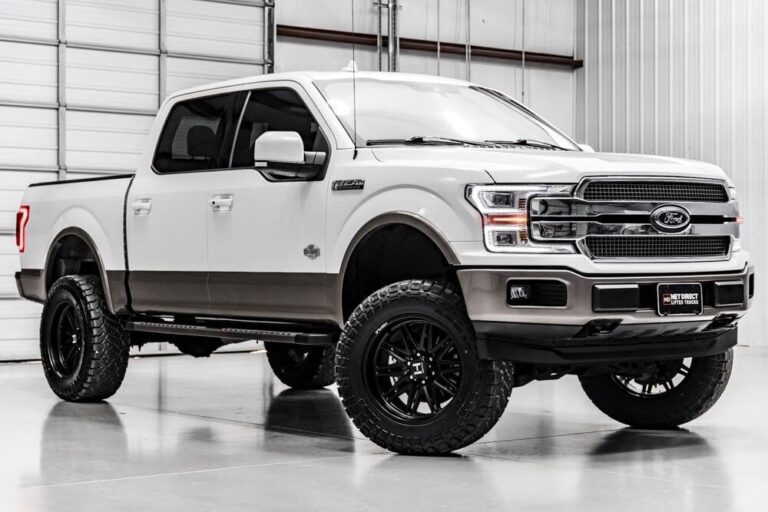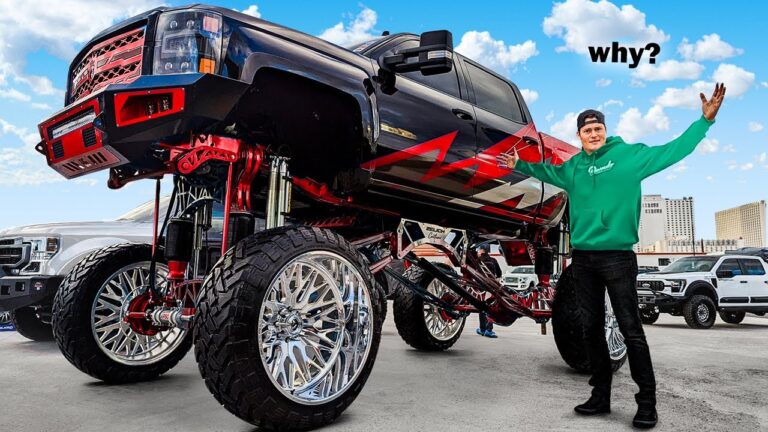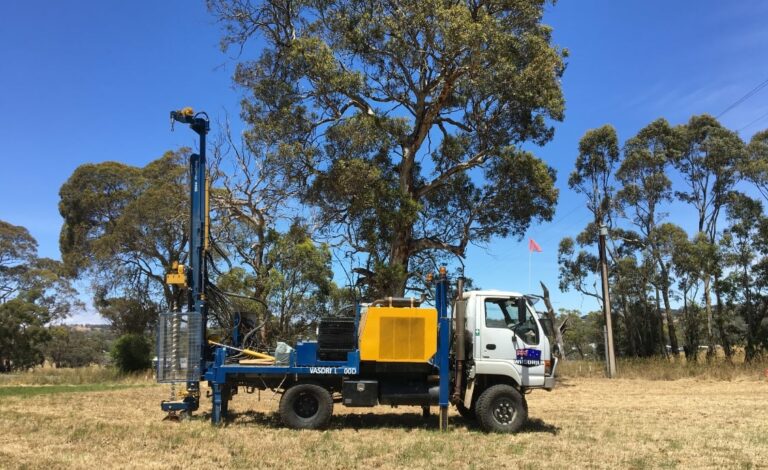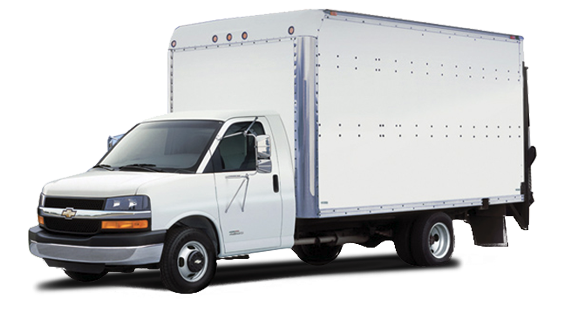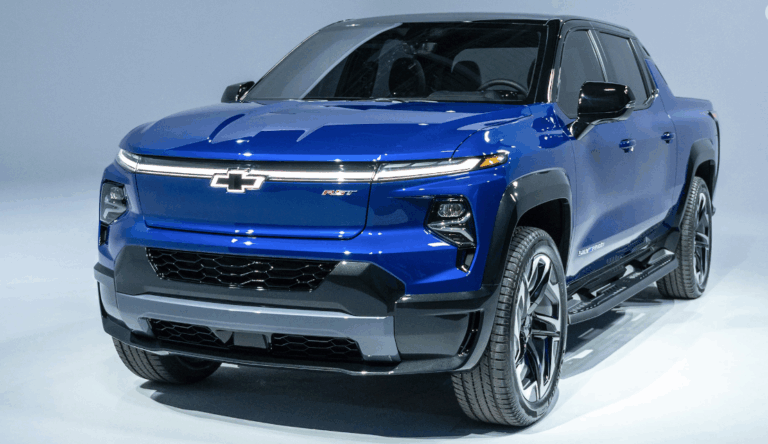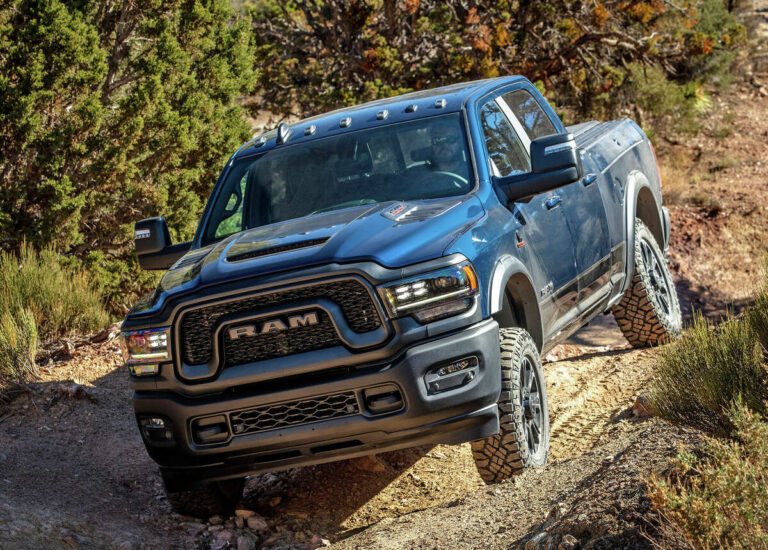Small Dump Trucks For Sale: Your Comprehensive Guide to Compact Powerhouses
Small Dump Trucks For Sale: Your Comprehensive Guide to Compact Powerhouses cars.truckstrend.com
In the bustling world of construction, landscaping, agriculture, and property maintenance, the efficiency of material transport can make or break a project. While massive, multi-axle dump trucks dominate the large-scale scene, there’s an increasingly vital niche filled by their more agile, compact counterparts: small dump trucks. These versatile machines, often overlooked in favor of their larger brethren, offer an unparalleled blend of maneuverability, cost-effectiveness, and utility for a myriad of tasks.
This comprehensive guide delves into everything you need to know about small dump trucks for sale, from understanding their core benefits and diverse types to navigating the buying process and ensuring long-term operational success. Whether you’re a small business owner, a dedicated landscaper, a busy farmer, or a homeowner tackling ambitious DIY projects, a small dump truck could be the indispensable workhorse you’ve been searching for.
Small Dump Trucks For Sale: Your Comprehensive Guide to Compact Powerhouses
What Defines a Small Dump Truck? The Compact Powerhouse Explained
At its essence, a small dump truck is designed to transport and efficiently unload bulk materials like gravel, sand, soil, mulch, debris, and more, but on a scale that prioritizes agility and accessibility over sheer volume. Unlike heavy-duty dump trucks with capacities exceeding 20 tons, small dump trucks typically range in payload capacity from half a ton (1,000 lbs) up to around 6-7 tons (12,000-14,000 lbs).
These vehicles are characterized by their more compact footprint, often built on a light to medium-duty truck chassis, or as dedicated, purpose-built compact machines. Key features almost always include a hydraulically operated bed that tilts to dump its contents, robust tires suitable for various terrains, and an engine powerful enough to handle loaded transport. Their size allows them to navigate tight residential streets, squeeze into cramped job sites, and operate efficiently where larger trucks would be impractical or impossible.
Common applications for small dump trucks are incredibly diverse:
- Landscaping: Hauling mulch, topsoil, decorative stones, and removing yard waste.
- Construction: Transporting aggregates, demolition debris, tools, and smaller equipment on residential or commercial sites.
- Municipal Work: Roadside maintenance, park upkeep, small-scale utility projects.
- Agriculture: Moving feed, manure, produce, and supplies around farms.
- Property Management: Clearing snow, moving building materials for renovations, general cleanup.
- DIY & Home Projects: Perfect for major garden overhauls, shed building, or clearing land.

Why Choose a Small Dump Truck? Unpacking the Core Benefits
The decision to invest in a small dump truck often stems from a direct need for efficient material handling without the overhead of a larger vehicle. Here are the core advantages that make them a preferred choice for many:
- Unmatched Maneuverability: This is arguably their biggest selling point. Their compact dimensions allow them to access narrow driveways, backyard gates, tight urban construction sites, and winding paths where larger trucks simply cannot go. This saves time, labor, and potential damage to property.
- Cost-Effectiveness: Small dump trucks typically have a lower initial purchase price compared to their full-sized counterparts. Furthermore, they boast better fuel efficiency, lower insurance premiums, and reduced maintenance costs, leading to significant savings over their operational lifespan.
- Reduced Environmental Impact: Smaller engines generally mean lower emissions and a smaller carbon footprint, aligning with growing environmental consciousness.
- Versatility and Adaptability: Many small dump trucks can be equipped with various attachments (e.g., plows for snow removal, salt spreaders, toolboxes) or modified with different bed types, extending their utility far beyond simple material hauling.
- Easier Operation and Licensing: Many small dump trucks fall below the Gross Vehicle Weight Rating (GVWR) threshold that requires a Commercial Driver’s License (CDL), making them accessible to a wider range of operators, including homeowners and small business owners without specialized licensing.
Types and Categories of Small Dump Trucks
The "small dump truck" umbrella encompasses a surprising variety of designs, each optimized for specific tasks and environments. Understanding these categories is crucial for making an informed purchase:
-
Mini Dumpers (Walk-Behind & Ride-On): These are the smallest, often resembling powered wheelbarrows or compact utility vehicles.
- Capacity: Typically 0.25 to 1 ton.
- Features: Often tracked for superior off-road capability (mud, uneven terrain), or wheeled for smoother surfaces. Some are walk-behind, others are small ride-on units.
- Ideal For: Backyard projects, interior demolition, tight access landscaping, navigating steep slopes.
-
Light-Duty Pickup Dump Trucks/Inserts: These are standard pickup trucks modified with a dump bed, or a hydraulic dump insert installed into a regular pickup bed.
- Capacity: 0.5 to 2 tons (depending on the base pickup’s payload).
- Features: Retain the familiarity and comfort of a pickup truck, often dual-purpose. The dump insert can be removed if needed.
- Ideal For: Small-scale landscaping, general contractors, homeowners needing occasional dumping capability without a dedicated truck.
-
Compact Commercial Dump Trucks (Cab & Chassis): These are purpose-built small dump trucks, often based on a commercial cab-and-chassis design.
- Capacity: 2 to 6 tons.
- Features: Dedicated hydraulic systems, robust frames, often available with 4×4 or specialized transmissions. Can be gasoline or diesel.
- Ideal For: Professional landscapers, small construction companies, municipal services, utility crews. These are the workhorses for many small businesses.
-
Articulated Mini Dumpers: Similar to larger articulated haulers but scaled down.
- Capacity: 1 to 5 tons.
- Features: Articulated steering allows for exceptional maneuverability in rough terrain, often 4WD, designed for off-road use.
- Ideal For: Extreme off-road conditions, mining, tunneling, large-scale landscaping over uneven ground.
-
Tracked Dumpers: Similar to mini dumpers but exclusively on tracks, offering superior flotation and traction.
- Capacity: Varies widely, from small walk-behinds to larger ride-on units.
- Features: Low ground pressure, excellent stability on soft, muddy, or sandy ground, or steep inclines.
- Ideal For: Wetland areas, delicate landscapes, environmentally sensitive sites, steep slopes where wheeled vehicles struggle.
When considering fuel type, gasoline models are generally less expensive to purchase and maintain, quieter, and perform well for lighter loads and intermittent use. Diesel models offer superior torque, fuel efficiency for heavy loads, and a longer lifespan, making them ideal for consistent, heavy-duty commercial use, though they come with higher initial and maintenance costs. The emergence of electric mini dumpers also offers a zero-emission, quiet alternative for indoor or noise-sensitive environments.
Key Considerations When Buying a Small Dump Truck
Purchasing a small dump truck is a significant investment. Careful consideration of several factors will ensure you select the right vehicle for your needs and budget.
-
New vs. Used:
- New: Offers the latest technology, warranty, customization options, and peace of mind. Higher initial cost.
- Used: Significant cost savings, quicker depreciation already occurred. Requires thorough inspection, may come without a warranty, and could have hidden issues. A good option for budget-conscious buyers who are mechanically inclined or can afford a professional inspection.
-
Payload Capacity & GVWR: Accurately assess the maximum weight and volume of materials you’ll typically haul. Overloading is dangerous, illegal, and damages the truck. Ensure the Gross Vehicle Weight Rating (GVWR) matches your licensing capabilities.
-
Engine & Drivetrain:
- Gasoline vs. Diesel: As discussed, match to your usage frequency and load requirements.
- 2WD vs. 4WD: If you’ll be operating on uneven terrain, mud, snow, or steep inclines, 4WD is essential for traction and stability. For paved surfaces or light duty, 2WD is sufficient and more fuel-efficient.
-
Bed Material & Type:
- Steel: Most common, durable, resistant to dents and scratches, heavier.
- Aluminum: Lighter (improves payload capacity and fuel economy), corrosion-resistant, but more expensive and prone to denting.
- Standard Dump Bed: Most common, simple hydraulic lift.
- Flatbed Dump: Offers more versatility for hauling pallets, equipment, or odd-shaped items that can then be dumped.
- Scissor Lift Dump: Lifts the bed vertically before tilting, useful for precise dumping or clearing high obstacles.
-
Maintenance & Parts Availability: Research the brand and model. Are parts readily available? Is there a network of authorized service centers nearby? Opting for well-known brands can simplify future maintenance and repairs.
-
Legal & Licensing Requirements: Understand the GVWR. In many regions, trucks under 26,001 lbs GVWR do not require a CDL for non-commercial personal use. However, commercial use may still have specific regulations. Check local Department of Motor Vehicles (DMV) or equivalent body.
-
Budget: Beyond the purchase price, factor in registration, insurance, fuel, routine maintenance, and potential repair costs.
Where to Find Small Dump Trucks for Sale & The Buying Process
Finding the right small dump truck involves exploring various avenues and approaching the purchase systematically.
-
Dealerships:
- New Truck Dealers: Offer the latest models, warranties, and financing options. Ideal for businesses seeking specific configurations or long-term reliability.
- Used Truck/Equipment Dealers: A good source for certified pre-owned trucks. They often inspect and service vehicles before sale and may offer limited warranties.
-
Online Marketplaces:
- Heavy Equipment Specific Sites: Websites like MachineryTrader.com, TruckPaper.com, IronPlanet.com, or EquipmentTrader.com specialize in commercial vehicles and equipment, offering a wide selection.
- General Classifieds: Craigslist, Facebook Marketplace, and local online classifieds can yield good deals from private sellers, but require more caution and due diligence.
-
Auctions:
- Public Auctions: Government surplus, repossessed vehicles, or fleet liquidations can offer competitive prices. Be prepared to buy "as-is" and conduct a quick inspection.
- Online Auctions: Many auction houses now offer online bidding, expanding your reach.
-
Direct from Owners: Look for "for sale by owner" signs, local newspaper ads, or network within your industry. This can sometimes lead to the best deals as there’s no middleman.
The Buying Process – A Step-by-Step Guide:
- Define Your Needs: Capacity, terrain, budget, new/used preference.
- Research: Compare brands, models, and prices online. Read reviews.
- Inspect Thoroughly (especially for used trucks):
- Engine: Check for leaks, strange noises, smoke from the exhaust.
- Hydraulics: Test the dump mechanism multiple times. Look for leaks around cylinders and hoses.
- Frame & Body: Inspect for rust, cracks, collision damage, or poor repairs. Check the bed for excessive wear or holes.
- Tires: Check tread depth, uneven wear (can indicate alignment issues), and sidewall condition.
- Electrical: Test all lights, wipers, horn, and dashboard gauges.
- Test Drive: Listen for unusual noises, check braking, steering, and transmission shifts. Drive it loaded if possible.
- Professional Inspection: For used trucks, consider hiring a qualified mechanic to perform a pre-purchase inspection. This small cost can save you thousands.
- Check Vehicle History (VIN): For used trucks, run a VIN check for accident history, flood damage, or salvage titles.
- Negotiate: Don’t be afraid to haggle. Be prepared to walk away if the deal isn’t right.
- Paperwork: Ensure all titles, registrations, and sales agreements are correct and complete.
Owning and Operating Your Small Dump Truck: Tips & Challenges
Once you’ve acquired your small dump truck, proper operation and maintenance are key to maximizing its lifespan and ensuring safe, efficient use.
Operational Tips:
- Never Overload: Always adhere to the manufacturer’s Gross Vehicle Weight Rating (GVWR) and Gross Axle Weight Rating (GAWR). Overloading strains the engine, transmission, brakes, tires, and frame, leading to premature wear and dangerous operating conditions.
- Proper Weight Distribution: Load materials evenly in the bed to maintain balance and stability, especially when driving on uneven terrain or around corners.
- Safe Dumping Procedures: Ensure the truck is on level ground before lifting the bed. Be aware of overhead obstructions (power lines, tree branches). Watch for people or objects behind the truck. Never dump on a slope unless the truck is designed for it and safety protocols are strictly followed.
- Pre-Trip Inspections: Before each use, quickly check tires, lights, fluid levels (oil, coolant, hydraulic fluid), and general condition.
Maintenance Schedule:
- Regular Fluid Checks: Engine oil, transmission fluid, coolant, brake fluid, and especially hydraulic fluid for the dump mechanism.
- Greasing: Regularly grease all zerk fittings on the suspension, steering components, and dump cylinder pivot points to reduce friction and wear.
- Tire Care: Maintain correct tire pressure, rotate tires as recommended, and replace worn tires promptly.
- Brake Inspection: Periodically check brake pads/shoes and rotors/drums for wear.
- Cleanliness: Keep the truck, especially the undercarriage and dump mechanism, free of excessive dirt and debris to prevent rust and ensure smooth operation.
Common Challenges & Solutions:
- Hydraulic Leaks: A common issue. Regularly inspect hoses, fittings, and cylinders. Address small leaks immediately before they become major problems.
- Electrical Issues: Dim lights, non-functioning gauges. Check battery terminals, fuses, and wiring for corrosion or damage.
- Rust: Especially prevalent in older trucks or those in harsh climates. Regular washing, especially underneath, and applying rust-inhibiting coatings can help. Address surface rust before it penetrates.
- Unexpected Repairs: Even well-maintained trucks can have unforeseen breakdowns. Set aside a contingency fund for repairs. Building a relationship with a reliable mechanic specializing in commercial vehicles is invaluable.
Small Dump Truck Price Table
Please note: These are estimated price ranges and can vary significantly based on brand, model, features, engine type, condition, mileage, location, and market demand. Always verify prices with current listings and dealers.
| Type/Category | Capacity Range (approx.) | Condition | Estimated Price Range (USD) | Key Features/Notes |
|---|---|---|---|---|
| Mini Dumper (Walk-Behind) | 0.25 – 0.75 tons | New | $3,000 – $8,000 | Compact, often tracked, gasoline engine, manual/hydrostatic drive. Ideal for tight spaces. |
| Mini Dumper (Ride-On) | 0.5 – 1.5 tons | New | $7,000 – $18,000 | More robust, often tracked/4WD, hydrostatic drive, better operator comfort. |
| Used Pickup Dump Insert | 0.5 – 1.5 tons | Used (Good) | $2,000 – $6,000 | Fits existing pickup truck bed, hydraulic lift, cost-effective entry. |
| Used Pickup Dump Truck | 1 – 2 tons | Used (Good) | $8,000 – $25,000 | Standard pickup chassis with dedicated dump bed, gasoline/diesel. |
| Compact Commercial Dump | 2 – 4 tons | Used (Good) | $20,000 – $45,000 | Dedicated chassis, often diesel, 2WD/4WD options, more durable for commercial use. |
| Compact Commercial Dump | 4 – 7 tons | Used (Good) | $35,000 – $65,000 | Larger capacity within the "small" range, heavy-duty components, typically diesel. |
| Compact Commercial Dump | 2 – 4 tons | New | $50,000 – $90,000+ | Latest models, warranty, customization, modern features, often higher tech. |
| Articulated Mini Dumper | 1 – 5 tons | New | $25,000 – $70,000+ | Excellent off-road capability, articulated steering, often 4WD. |
Frequently Asked Questions (FAQ) About Small Dump Trucks
Q1: What’s the typical payload capacity of a small dump truck?
A1: Small dump trucks generally range from 0.5 tons (1,000 lbs) for mini dumpers up to 7 tons (14,000 lbs) for larger compact commercial models. Always check the specific truck’s Gross Vehicle Weight Rating (GVWR) and payload capacity.
Q2: Do I need a special license to drive a small dump truck?
A2: In many regions, if the truck’s Gross Vehicle Weight Rating (GVWR) is below 26,001 lbs and it’s not being used for specific commercial purposes requiring a CDL (Commercial Driver’s License), a standard driver’s license is sufficient. However, regulations vary by state/country and intended use, so always verify with your local Department of Motor Vehicles or equivalent authority.
Q3: What’s the difference between a mini dumper and a compact dump truck?
A3: A mini dumper is typically a very small, often walk-behind or small ride-on machine, designed for extremely tight spaces and smaller loads (under 1.5 tons). A compact dump truck, on the other hand, is usually a street-legal vehicle built on a truck chassis, offering higher capacities (2-7 tons) and greater road-worthiness for commercial transport.
Q4: Is it better to buy a new or used small dump truck?
A4: This depends on your budget and needs. New trucks offer reliability, warranty, and the latest features but come at a higher cost. Used trucks are more affordable and have already depreciated significantly, but require thorough inspection and may incur more immediate maintenance costs. For a first-time buyer or those with a limited budget, a well-inspected used truck can be an excellent value.
Q5: What are the most important things to check when buying a used small dump truck?
A5: Key inspection points include the engine (leaks, noises, smoke), the hydraulic system (for the dump bed, checking for leaks and smooth operation), the frame (for rust, cracks, or bends), tires (wear and condition), and a test drive to assess braking, steering, and transmission. A professional pre-purchase inspection is highly recommended.
Q6: How much does it cost to maintain a small dump truck annually?
A6: Maintenance costs vary greatly based on the truck’s age, usage, brand, and condition. Expect to budget anywhere from $500 to $2,000+ annually for routine maintenance (oil changes, filters, greasing, tire rotations) and potential minor repairs. Older or heavily used trucks will likely require more.
Q7: Can a small dump truck be used for snow removal?
A7: Yes, many small dump trucks, especially those with 4WD, can be equipped with a snow plow attachment on the front and a salt/sander spreader in the bed, making them excellent multi-purpose vehicles for winter maintenance.
Conclusion: Empowering Your Projects with a Small Dump Truck
Small dump trucks are far more than just miniature versions of their colossal cousins; they are purpose-built solutions for a world that demands efficiency, agility, and cost-effectiveness. From navigating the intricate pathways of a residential landscape project to hauling essential materials on a bustling urban construction site, these compact powerhouses offer a unique blend of capabilities that larger vehicles simply cannot match.
By understanding the diverse types available, diligently considering your specific needs, and approaching the buying process with careful thought and inspection, you can acquire a small dump truck that will not only enhance your productivity but also become an indispensable asset for years to come. Whether you’re a seasoned professional or embarking on your first major project, investing in the right small dump truck means investing in greater operational freedom, significant savings, and the power to tackle tasks with renewed confidence.
